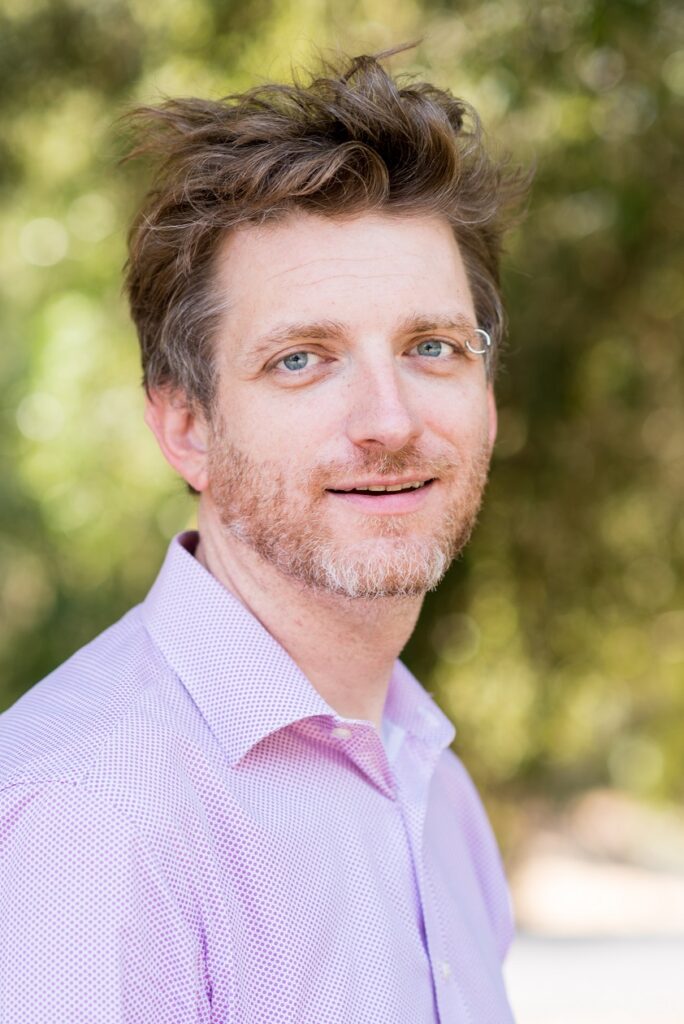
Image courtesy: CASBS at Stanford
In April 2021, Assistant Professor Benjamin Mako Hill received the prestigious Faculty Early Career Development Program (CAREER) grant from the National Science Foundation (NSF). The CAREER award supports early-career faculty who have the potential to serve as academic role models in research and education, and to lead advances in the mission of their department or organization. The grant, $549,959 over five years, will allow Hill and his team to develop and validate a general theory of the lifecycles of knowledge commons, and to identify a set of strategies to help structure and govern peer produced commons effectively as they grow.
Digital knowledge commons like Wikipedia, open source software, and collaborative filtering systems like Reddit produce enormous social and economic value and serve as critical information infrastructure. These online communities rely on “peer production” to aggregate contributions from Internet users into vast knowledge bases, which are then made freely available. Citing a prevalent example, Hill points out that, “Wikipedia is the fifth most visited website in the world. Free/libre open source infrastructure serves as infrastructure that we rely on every time we visit a website. Much of what we love and value about the Internet is because of peer production. Although the term might be unfamiliar to many, peer production is the most important organizational innovation to emerge from the Internet. We should do everything we can to understand its complex dynamics and to help preserve and protect them.”
As crucial as they are, many knowledge commons are under attack by vandalisms, disinformation campaigns, and a range of special interests. At the same time, many of the (largely volunteer-based) groups that sustain mature communities have been stable or shrinking for years. Hill’s project will address this issue from a variety of angles: Why do peer produced knowledge commons increasingly reject the work of volunteers necessary for their long-term survival? How should communities structure themselves to better manage growth? How should they balance the competing goals of remaining open to contributions while protecting the value of what they have produced?
Hill has been thinking about these questions since he joined the University of Washington in 2013. “A paper I wrote with Nate TeBlunthuis and Aaron Shaw in 2018 documented the rise-and-decline lifecycle dynamics that form the puzzle this grant is trying to crack. Another project I worked on with Aaron Shaw, published last year in Communication Research, helped show that the kinds of policy changes that online communities make to fight vandalism incur quite a lot of unseen collateral damage,” he explains.
Hill spent the 2018-2019 academic year as a fellow at the Center for Advanced Studies in the Behavioral Sciences at Stanford University developing these ideas. While there, he talked with “a range of eminent social scientists who were in residence at the center. The proposed work in the CAREER is the outcome of that process of thinking and writing and presenting my work to others.”
When asked about the impact of Hill’s work in the field, Department of Communication Chair, Professor Christine Harold said, “Mako Hill’s work, and this project for which he has been granted an NSF CAREER award in particular, provides both an intellectual framework and a set of practical strategies and tools for maximizing the open, collaborative sharing of knowledge online. Its aim is not only to chart the course, but to also clear the obstacles as we strive to realize the promise of the Internet as a true commonwealth of reliable knowledge accessible to all. Our society is only as healthy as the information we consume, and this health depends upon our collective contributions and mutual trust.”
The Community Data Science Collective, which Hill founded, is an interdisciplinary research group made up of faculty and students at the UW Department of Communication as well as participants from elsewhere in academia and industry. Hill expects that current graduate students from the research group will assist with the work in various ways going forward.
Hill’s research on technology and society is grounded in “empirical studies seeking to understand how specific types of interventions affect certain organizational or communicative outcomes in specific online communities.” This project will build on that work, broadening and integrating its contributions by providing insights into how to better support the development and maintenance of knowledge commons. In doing so, this work will positively impact the millions of people who contribute to these knowledge commons and the billions who rely on their products in their professional and personal lives.
The broad and far-reaching goals of Hill’s project point to an array of innovations and possibilities for the future of online communities. As Harold puts it, “Hill’s brilliant career thus far has been devoted to fostering a robust and participatory digital commons that will remain free and open as it grows. His colleagues and I in the Department of Communication could not be more thrilled to see him acknowledged and supported by this incredible award from the NSF. I, for one, cannot wait to see what he does next.”
Hill himself is enthusiastic about the CAREER award’s strong focus on teaching and outreach: “I’m excited about building a new class at some point in the future for our undergrad program and/or the Communication Leadership program, about managing online community lifecycle dynamics. Another thing I’m excited about is that the grant will support an annual meeting of stakeholders from online communities where researchers and practitioners will share our work and experiences.”
The Department wishes Hill and his team the best in this project, and looks forward to their promising contributions to the academic community and beyond.
